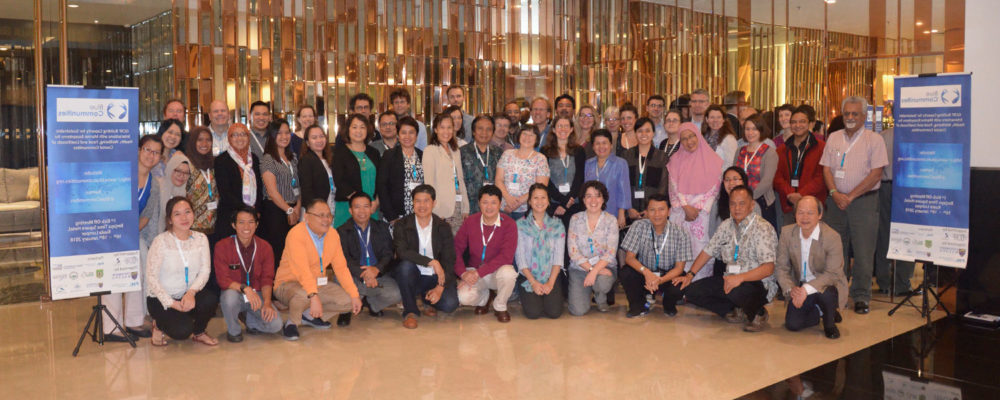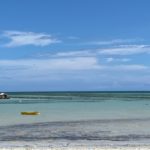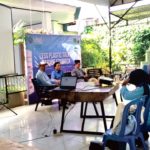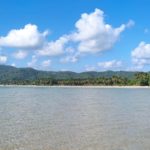During the first 2 weeks of August, Blue Communities held its second Annual Progress Meeting, which was jointly hosted by Plymouth Marine Laboratory and University of Plymouth.
The first two days were the progress meeting itself, when over 80 delegates from eight countries came together to hear about the headway made by the partners in SE Asia and across the 12 interdisciplinary research projects that make up Blue Communities. The visiting partners showcased the research that has been undertaken, stakeholder engagement activities in case study sites, capacity building accomplishments, additional grant successes and further collaborations with other related projects.
Following the presentations there were a range of interactive sessions on cross-cutting activities, such as publications, ethics, data management, communication strategies and the Early Career Researchers Network (ECRN). The objective of the plenary part of the meeting was to ensure integration, cohesion and effective interactions across projects, institutes and countries.
The group then took a field trip to North Devon where they were guided around the UK case study site, the UNESCO North Devon Biosphere Reserve. During this fascinating day the group learnt about the highly biodiverse ecosystem and management of Braunton Burrows, comprising shifting sand dunes, grass lands, dense scrub and ponds. Moving onto the Northam Burrows, an environmental management expert from the Biosphere Reserve explained about the complex governance of the area and balancing the needs of such a diverse range of different stakeholders.
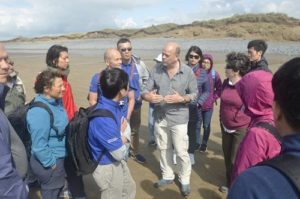
Once back in Plymouth, the full agenda of training workshops began, including mentoring in: statistical analysis; Bayesian Belief Networks and conceptual modelling; scenario development and application; evidence synthesis; critical analysis of marine planning, and ecosystems services and values.
A participant of the Project 2 (Critical analysis of marine planning model applications) training workshop, led by the University of Exeter, fed back:
“How easily the facilitators train participants in such a way that they are having fun and learning at the same time. The way you also encourage countries to collaborate among themselves and giving safe spaces for early career researchers is commendable.”
Dr Ana Queirós, Project 11 (Ecosystem-level policy and management options) lead and Senior Benthic Ecologist at Plymouth Marine Laboratory commented:
“The Project 11 workshops were a fantastic opportunity to co-develop climate-ready strategies for marine spatial planning with each of our case-study partner teams, and to really bring out their multi-disciplinary expertise.”
“A highlight for me was gaining a better understanding of the major differences in scale and context between regions, as well as what issues affect climate resilience and planning, what sectors are important, and how priorities line up. This is an excellent demonstrator of the global challenges affecting the creation of climate-ready marine management options, and it is a testament to the real-life applicability of the Blue Communities program, which is really at the leading edge in this regard.”
“The contributions of the Advisory Board, as well as from the Programme Director and other project leads, to the workshops were also very well received. The P11 Jupyter Notebook workshop was a success in terms of scientific and stakeholder engagement, with over 30 people attending and working on P11 modelling and GIS datasets simultaneously. Well done everyone!”
Following the launch of the Blue Communities ECRN website in June, the group had a day to explore opportunities, challenges and development needs for early career researchers alongside allocated mentors, including: how to develop a research proposal; how to manage a research project, and potential project ideas. On the same day the young Swedish climate change activist, Greta Thunberg, arrived in Plymouth before her voyage across the Atlantic. The ECRN invited Greta to join their dinner plans that evening, however, this was thwarted by her extremely tight schedule.
Towards the end of the week of workshops, the conference dinner was hosted at the Marine Biological Association, providing great food and a wonderful view of the British Firework Championships.
Overall, it has been a real privilege to welcome our partners from SE Asia to the UK, endeavouring to return the favour of the exemplary hospitality shown to the UK teams during their visits to the Case Study Partners, and show the visitors the delights of Devon and Cornwall, including the weekend excursions to the Eden Project, South Devon Chilli Farm and Mount Edgcumbe. The fortnight has been extremely busy with such a packed agenda but a tremendous amount of progress has been made and many lasting collaborations have been forged.
The next meet is planned for 2020 in Vietnam, which will have a focus on outputs and maximising the impact of Blue Communities research.
Source: blue-communities.org

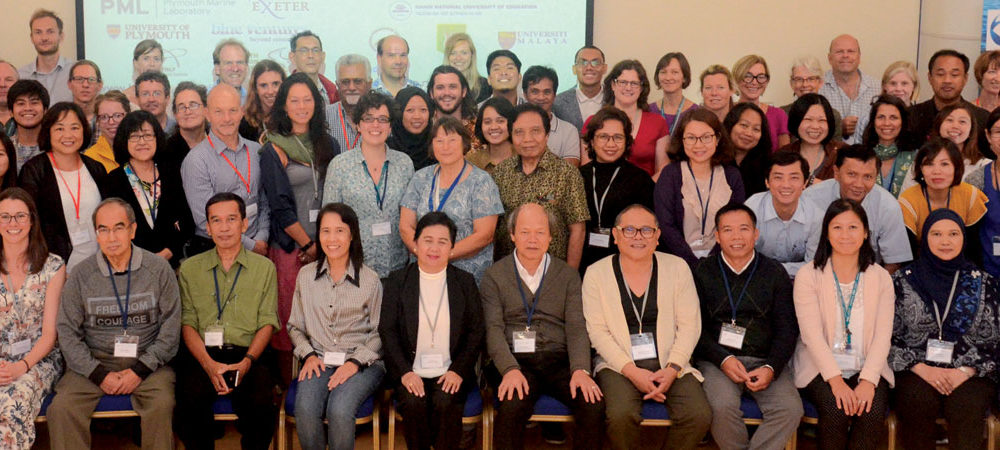
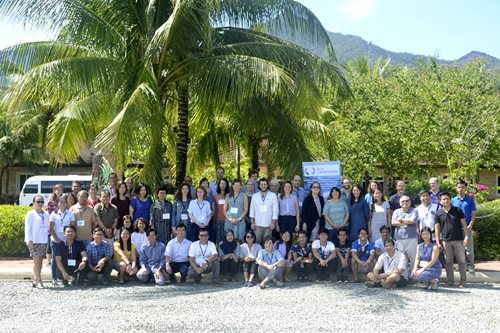
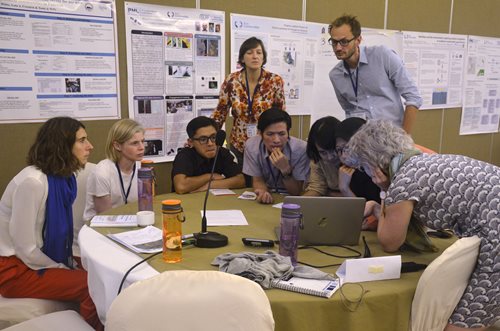 There was a highly pertinent panel discussion on research ethics including: how to conduct research ethically and responsibly; the procedure for an ethics approval application, and what to do if unethical practices are witnessed. This fascinating exploration of the issues surrounding research ethics demonstrated a real interest and desire to discuss further. Consequently, more capacity building in research ethics for all researchers participating in the projects within the Blue Communities programme is being planned. Other training needs identified included evaluation of research outcomes and impact, stakeholder engagement and ‘training the trainer’ workshops.
There was a highly pertinent panel discussion on research ethics including: how to conduct research ethically and responsibly; the procedure for an ethics approval application, and what to do if unethical practices are witnessed. This fascinating exploration of the issues surrounding research ethics demonstrated a real interest and desire to discuss further. Consequently, more capacity building in research ethics for all researchers participating in the projects within the Blue Communities programme is being planned. Other training needs identified included evaluation of research outcomes and impact, stakeholder engagement and ‘training the trainer’ workshops.
